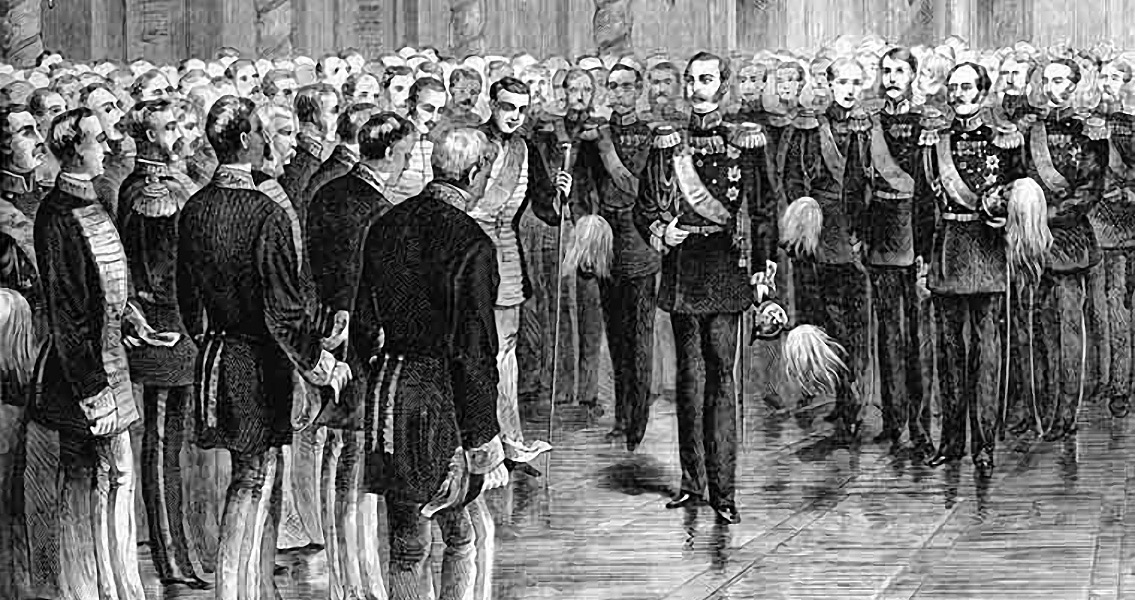<![CDATA[Two years before Abraham Lincoln issued the Emancipation Proclamation, an imperial command from Tsar Alexander II on the 3rd March 1861 abolished serfdom in Russia. Like the Emancipation of slaves in the United States, the end of serfdom in Russia had huge social, political and economic consequences. While Abraham Lincoln is immortalised as a hero however, the consequences of liberation in Russia have made Alexander II a much more questionable historical figure. Serfdom was distinct from slavery by definition, if not practice. The enslavement of African American's in the United States meant that a landowner was the legal owner of his slaves, and as such could treat them like a piece of property. In serfdom, this was not the case, the relationship between serf and landlord was based on land. The serf was tied to the landowner because he lived on his property, however, he was not property in himself. In terms of the limitations on personal freedom, this legal distinction made little difference, the landowner had the power to prevent his serfs from moving elsewhere. Landowners and serfs were not a uniquely Russian phenomenon, they were tied to Feudalism and had been prevalent throughout Europe during the Middle Ages. By the nineteenth century however, serfdom had largely disappeared with the advent of industrialisation and modernisation. Russia was the biggest and clearest exception to this rule. Up until the middle of the nineteenth century, Russia's failure to modernise politically, economically and socially was offset by its continued military might. Put simply, feudal institutions persisted as there was no need to modernise them. The Crimean War of 1853 to 1856, and in particular Russia's humiliation in the conflict, marked a key turning point. It suddenly became clear that the modernised military of countries like France and Great Britain had advanced to the extent that they could overwhelm Russia's numerical advantage. Tsar Alexander II inherited the Russian throne in 1855, as the Crimean War seemed at its most hopeless. It is clear that Russia's humiliation affected his reign, leading to a host of significant policies designed to modernise the country. Serfdom was held up as the cause of a host of Russia's problems, from its military failure, to famines, slow industrialisation and civil disorder. Pressure from the serfs, as well as Russia's civil society, and even landowners themselves, added to the weight on the Tsar to take action. In reality, Alexander II actually asked the Russian nobility to decide on the changes needed to destroy Serfdom. After a number of committees were held, Alexander eventually published the Emancipation Manifesto on March 3rd, 1861. The Manifesto was made into law within a few days, and all Serfs were given the right to become free citizens, to marry who they wanted and to purchase land. In order to buy the land on which they lived, Serfs were forced to take government loans. These loans, which had 100% interest and needed to be repaid over 49 years, not only put tremendous strain on the serfs of 1861, but also their children who inherited the land and the debt. The serfs had gained significant freedom, but their impoverished position as the "dark masses" of Russian society remained. In the short term, the emancipation of the serfs, combined with other modernising reforms initiated by the Tsar, had the desired impact. Between 1860 and 1900 the Russian economy grew at an average of 4.6% per year. There was also a dramatic rise in commercial farming, which significantly changed the structure of Russian rural society. Alongside the desire to modernise Russia, it seems the decision to emancipate the serfs was also driven by an urge to prevent social unrest. In the years between 1826 and 1854 there had been over 700 peasant uprisings in Russia. The Emancipation seemed like a grand gesture designed to appease the serfs that made up a third of the country's population. The reform also saw a strict system of local government installed in Russia, replacing the rule of the landowner with that of a local authority. Many historians have since argued that the Emancipation was in fact a swindle, encouraging modernisation but offering little progress for the social standing of Russia's rural poor. Alexander II is often remembered as a reforming Tsar, a comparatively liberal member of a notoriously conservative dynasty. It is clear that his rule saw drastic change in Russian society, but this seemed to be motivated by the need to make Russia competitive on the international stage, rather than a desire for equality or democratisation. Perhaps the biggest measure of the Tsar's reformist reputation concerns his death. On March 2nd 1881 he was assassinated by members of the People's Will, a revolutionary terrorist organisation. Alexander was responsible for one of the most monumental changes in Russian History, yet failed to do enough to truly quench the desire for progress.]]>
Alexander II Emancipates the Serfs
